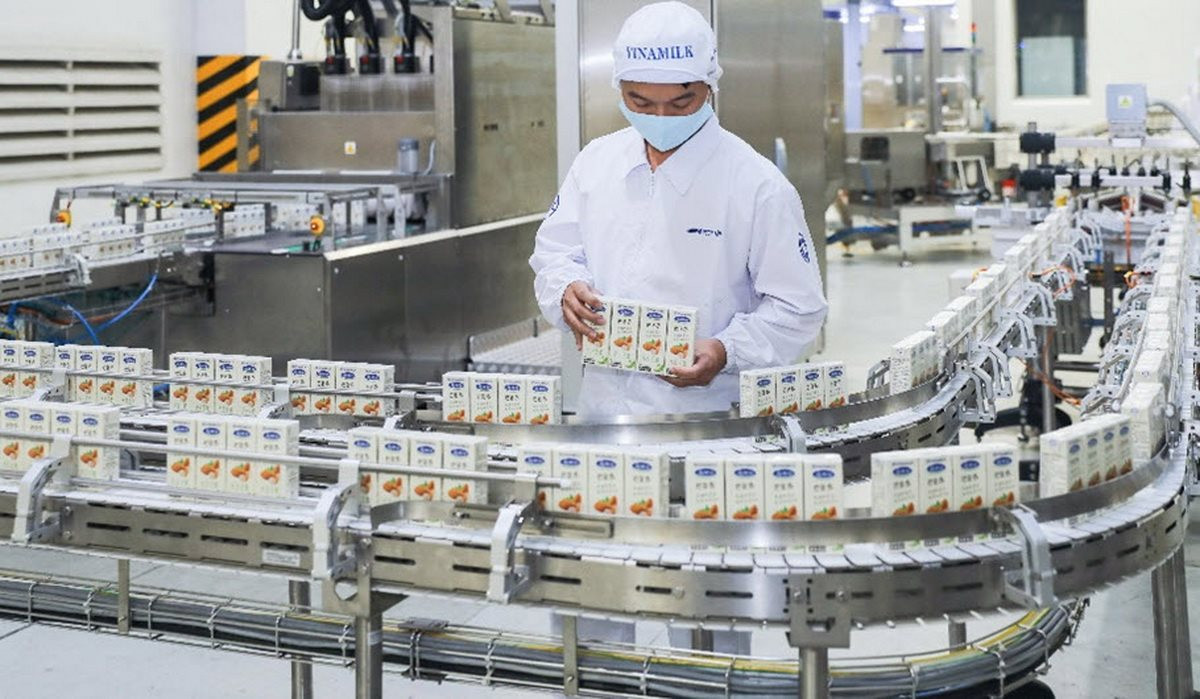Stronger USD and its impacts on Vietnam's agribusiness
The uptrend in USD/VND rates will have different effects on producers, especially agribusinesses.

The effect of an increasing exchange rate on the gross margin of VNM in 2023F will be mitigated by lower material prices.
>> Rice export prices might rise in 2023
A stronger USD has pressured the USD/VND exchange rate, pushing it to its all-time high in the interbank market. According to VNDirect, producers would be impacted differently by an increase in the exchange rate. Exporters of rice and seafood stand to gain the most thanks to increasing export prices. Producers of food oils, meat, dairy, and sugar could also suffer consequences.
About 80% of the raw ingredients used to make animal feed are imported, with soybeans and soybean meal accounting for 90–95% of these imports. As a result, farmers are forced to pay more when importing raw ingredients for animal feed due to the higher USD.
Ms. Ha Thu Hien, analyst at VNDirect, thinks that BAF and HAG will be less impacted by rising currency rates than their competitors. Tan Long Group may assist BAF with input costs, and HAG can benefit from banana production from the fruit industry that doesn't fulfill export criteria by using those bananas as raw materials for the production of animal feed.
For edible oil producers, an increase in the exchange rate will raise the cost of importing raw materials because it is estimated that 90% of the raw cooking oil is imported, particularly palm oil from Malaysia and Indonesia. According to Ms. Ha Thu Hien, this will have an effect on the input costs of KDC's oil production section, which generates close to 80% of the company's overall revenue.
According to Ms. Ha Thu Hien, the increase in feed prices will have an impact on the gross margin of the meat producers' operations. The impact of rising input prices could be lessened by the swine price, which is predicted to increase by 5% yoy in 2023F.
Due to the fact that 50% of VNM's milk material is imported from the EU to make powdered milk and nutritious powder, the company will now face a new battle from dairy producers due to the rising currency rate. However, since China continues its Zero-Covid policy and the 2023F output is expected to rise by 1.5% yoy, we anticipate the price of whole milk powder to continue declining and trade at 5.0% less than in 2022. Therefore, according to Ms. Ha Thu Hien, the effect of an increasing exchange rate on the gross margin of VNM in 2023F will be mitigated by lower material prices.
Furthermore, VNM's short-term debts, which comprise 98% of its total debt, are primarily bank loans in US dollars.Thus, we believe the company's financial expenses will increase significantly in FY22–FY23. VNM, on the other hand, had a strong balance sheet at the end of September 22 with a net cash position of VND 10,718 per share and a low leverage of 0.3x, allowing the company to downplay the risks of interest rates and currency fluctuations.
>> Vietnam’s sugar producers could take back its position
Regarding sugar producers, due to a decrease in the domestic sugarcane area in recent years, sugar producers also import raw sugar for refining in addition to pressing sugar from cane. In 2021, SBT produced 708,000 metric tons of sugar, of which about 210,000 metric tons were from sugarcane and the rest was imported raw sugar.
Meanwhile, QNS also plans to import 5,000 metric tons of raw sugar to refine RE sugar. Therefore, we believe that QNS and SBT will be affected by the rising exchange rate at different levels. However, Ms. Ha Thu Hien also expects domestic sugar prices to keep increasing in 2023F. Therefore, the higher sugar price may offset the effect of the rising exchange rate on gross margin.
For rice producers, most export orders are paid in USD, so a rising exchange rate will help rice exporters improve their gross margins. The specificity of the rice industry is that orders are signed monthly; therefore, those who have already delivered will benefit when the US dollar increases. Customers who have not yet received their orders, on the other hand, will be concerned and may consider purchasing rice at a later stage to avoid the impact of the US$ increase. Besides, Ms. Ha Thu Hien also sees that LTG currently has a short-term debt of US$69m, (accounting for 49.5% of its total short-term debt). Thus, she believes LTG's financial expenses will increase amid a higher exchange rate.








